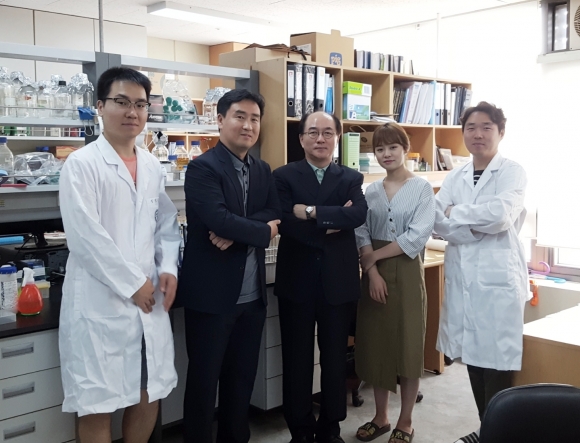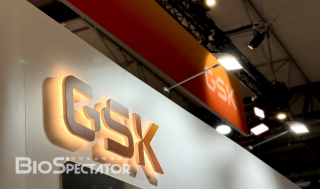탐방
Good T Cell, "Identification novel Treg surface marker for development"
by Euna Lee
Good T Cells Inc. (GTC), a bio-venture company founded in 2016, currently develops first-in-class antibody drug and T cell therapeutics that specifically regulate the functions of regulatory T cells (Treg)”. In July of 2018 Good T Cells received an investment of 5 billion KRW from Yuhan Co, Ltd., for 6.25 % of Good T Cells’ share without IP licensing.

▲사진 왼쪽부터 김범석 굳티셀 책임연구원, 구정모 상무, 이상규 대표, 김미진 과장, 김정호 연구소장
Dr. Lee Sang-Kyou, Founder and CEO of Good T Cells, Inc., introduced the company to us, “recently the global pharmaceutical companies recognize that regulatory T cell (Treg) is an important therapeutic target to cure diverse cancers and autoimmune diseases. The Treg markers identified previously are known to be also expressed in other T cell subsets with opposite functions, consequently restricting the therapeutic application of Treg cells,”, "Good T Cells, Inc. unearthed a novel Treg cell-specific surface marker (TregL1) in 2010. We are planning to use the antagonistic Abs specific to TregL1 modulating the functions of Treg cell to treat solid cancers, and the TregL1-specific agonistic Ab will be used for the patients with autoimmune diseases or graft rejection. Besides, the development of autologous or allogeneic Treg cell therapy is currently undertaken.….”.
◇ Discovery of Treg cell-specific Surface Marker
Which marker can be employed to distinguish Treg cell from other T cell subsets? Surface protein such as CD25 or CTLA4 is expressed on Treg cells. There are alternative markers such as Foxp3, GITR, CD127, LAG3, Gpr83, and CD45RB. In particular, Foxp3 (Forkhead box 3) was found to play an important role in differentiation and activation of ‘CD4+Treg’, and recognized as the most powerful indicator. However, Foxp3, a transcription factor that resides inside the nucleus, technically limits its availability as a marker to separate Treg cells or as a therapeutic target, and furthermore the existence of Treg cells without Foxp3 expression has been also suggested..... <계속>



















